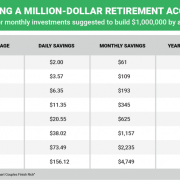South Carolina State Taxes
Nestled among the lush landscapes and historic charm of South Carolina lies a complex tapestry of tax regulations residents and businesses must navigate. From the sandy shores of Myrtle Beach to the mountain town of Greenville, understanding South Carolina’s tax system is essential for anyone living in or considering moving to the Palmetto State.
This article delves into the intricacies of South Carolina taxes, shedding light on its graduated state income tax rates, unique sales tax nuances, property taxes and other fiscal obligations that define life within this vibrant southern enclave. Whether you’re a long-time resident looking to demystify your annual tax responsibilities or a newcomer trying to grasp how these laws might affect your financial landscape, our comprehensive guide serves as your roadmap through the multifaceted world of South Carolina taxation.
South Carolina state income tax
South Carolina employs a graduated structure for its state income tax with rates spanning from 0 percent to 6.5 percent—a slight reduction from the previous top rate of seven percent. To account for inflation, the state adjusts these tax brackets each year and anticipates further rate reductions in future years.
The breakdown of these tax brackets is as follows:
- $0—$3,200 at 0 percent
- $3,201—$16,040 at 3 percent
- Above $16,040 at 6.5 percent
Sales Tax in South Carolina
South Carolina has a basic 6 percent sales tax on most items, but local taxes can increase it to a maximum of 9 percent. The state does not charge this base rate on essential goods like groceries, making everyday expenses more affordable. However, prepared foods, hotel stays and certain services are taxed at the total rate of both state and local taxes.
For big-ticket items like cars, South Carolina applies its regular sales tax rates but limits the tax amount to $500 for each vehicle sold. This approach aims to keep taxes fair for larger purchases and balance the need for public funding with the need to keep living costs reasonable.
South Carolina Property Tax
South Carolina’s property tax system encompasses two main categories:
- Real Estate Taxes: Applied to homes, land and buildings with rates varying by county. Owner-occupied residences benefit from a reduced rate of 4 percent on assessed value, compared to higher rates for non-owner occupied properties.
- Personal Property Taxes: Target vehicles, boats and airplanes, taxing them based on fair market value.
Additionally, the state offers exemptions aimed at lessening the burden for certain groups, including seniors over the age of 65, disabled individuals and veterans, as well as providing favorable conditions for agricultural lands actively used in farming. These efforts are designed to balance fiscal responsibility with support for South Carolina residents’ varied needs.
South Carolina Estate Tax
South Carolina does not levy an estate tax, following the federal government’s 2005 elimination of the state death tax credit. This means residents face no state-level estate taxes when transferring or inheriting property. The lack of a state estate tax simplifies inheritance matters, allowing South Carolinians to plan their estates without worrying about additional state taxes on top of federal obligations.
This policy reflects South Carolina’s commitment to creating a taxpayer-friendly environment, easing financial and legal processes for residents dealing with inheritances. By removing this layer of taxation, the state aims to promote economic stability and growth by reducing fiscal burdens during inheritance transitions.
South Carolina Retirement Tax
South Carolina offers a tax-friendly environment for retirees, highlighted by:
- Social Security Benefits: Completely exempt from state taxes.
- No Estate or Inheritance Tax: Enhances the state’s appeal by allowing retirees to pass on their financial legacy without additional taxes.
These policies collectively create an appealing setting for seniors looking to enjoy their retirement years with minimal taxation burdens.
To make sure you’re not overpaying on taxes, it’s smart to consult with a professional. A financial advisor can answer your tax questions and help ensure you pay only what’s necessary. At Horizons Wealth Management, we help you navigate your financial future with expertise behind you.








